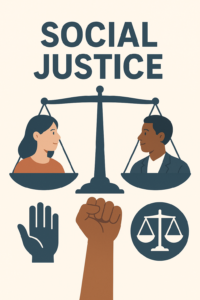Education is often described as the backbone of a nation, and rightly so. A country’s progress, prosperity, and stability are directly tied to the quality of education it provides to its citizens. The development of every sector—whether economic, social, cultural, or political—depends on how well its people are educated. Knowledge equips individuals with the ability to think critically, solve problems, and contribute meaningfully to society. Therefore, education is not just a personal privilege but a national necessity, shaping the future of a nation.

One of the most important roles of education is in the creation of human capital. A nation’s wealth is not only in its natural resources but also in the skills, knowledge, and creativity of its people. Through education, individuals acquire the expertise needed to build industries, develop technologies, and advance science. Countries with strong education systems, such as Japan, Germany, and South Korea, have transformed themselves into global leaders despite having limited natural resources. Their success demonstrates that it is not material wealth but intellectual capacity that drives progress.
Education also plays a critical role in strengthening democracy. An educated population is more aware of its rights and responsibilities, making it harder for corrupt practices or authoritarian rule to take root. When citizens are informed, they can make better decisions during elections and actively participate in governance. This creates a stable political environment, which is essential for national development. Furthermore, education fosters tolerance, empathy, and social harmony, helping diverse communities live together peacefully.

The future of a nation also depends on its economic growth, which is closely linked to education. A skilled workforce attracts investment and creates opportunities for innovation. For example, in today’s globalized world, industries demand professionals who are not only knowledgeable but also adaptable to new technologies. Education provides the foundation for such skills, ensuring that the workforce remains competitive. Without proper education, a nation risks falling behind, trapped in cycles of poverty and underdevelopment.
Moreover, education addresses social inequalities. It gives individuals from disadvantaged backgrounds the opportunity to improve their lives and contribute to society. By promoting equal access to education, nations can bridge the gap between the rich and the poor. This inclusivity reduces social tensions and fosters a sense of unity. When every citizen feels valued and empowered, the nation as a whole moves forward.
 Education also shapes the character and values of future generations. Beyond academic learning, it teaches discipline, responsibility, and respect for others. These qualities are essential for building a strong moral foundation in society. A nation whose people are both educated and ethical is more likely to achieve sustainable growth.
Education also shapes the character and values of future generations. Beyond academic learning, it teaches discipline, responsibility, and respect for others. These qualities are essential for building a strong moral foundation in society. A nation whose people are both educated and ethical is more likely to achieve sustainable growth.

In conclusion, education is not just a tool for personal development; it is the engine that drives a nation’s progress. It strengthens the economy, supports democracy, reduces inequality, and nurtures values that ensure long-term stability. Without education, no nation can hope to achieve true prosperity or secure its future. Thus, investing in education is the most important step any country can take to build a brighter tomorrow
